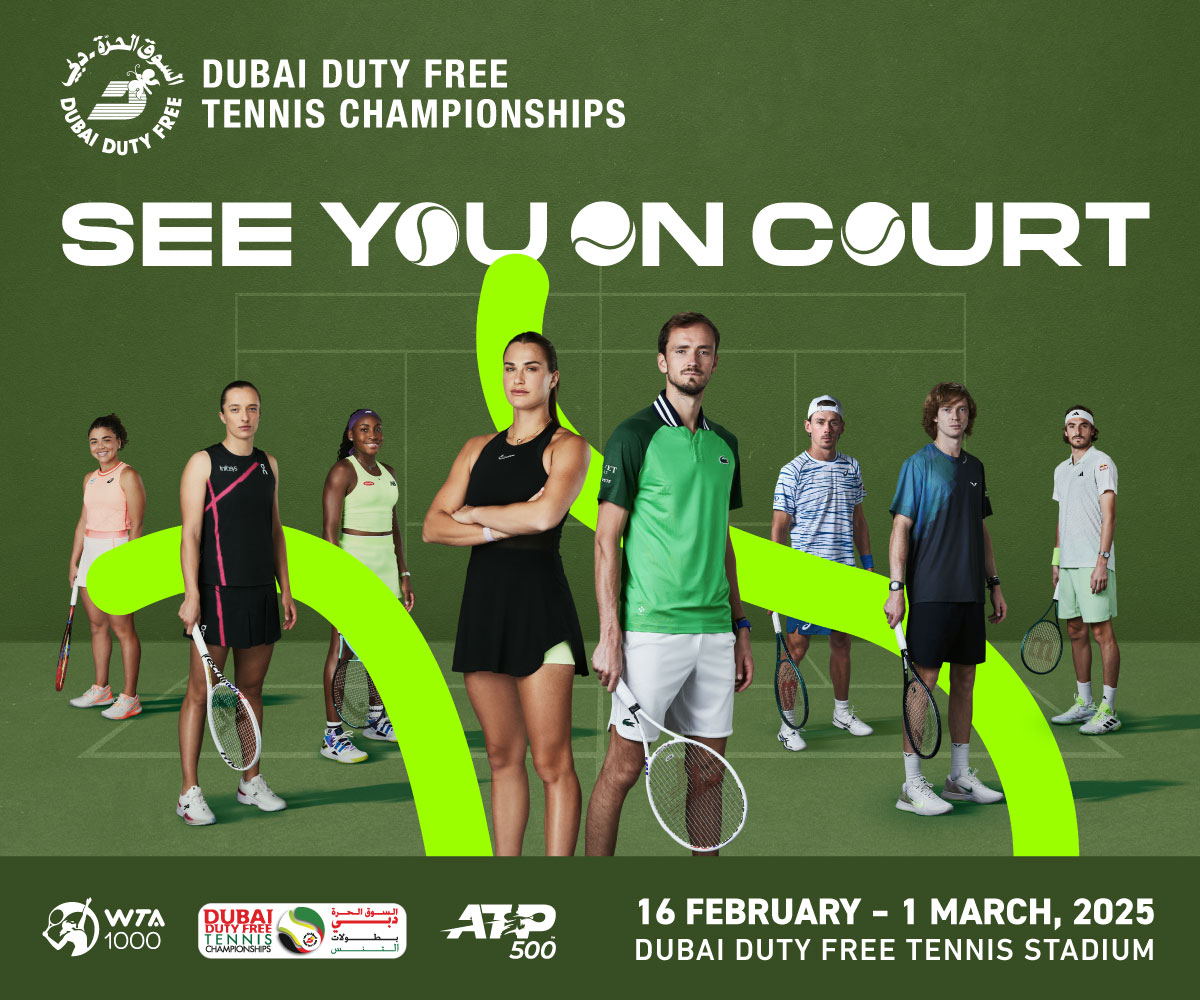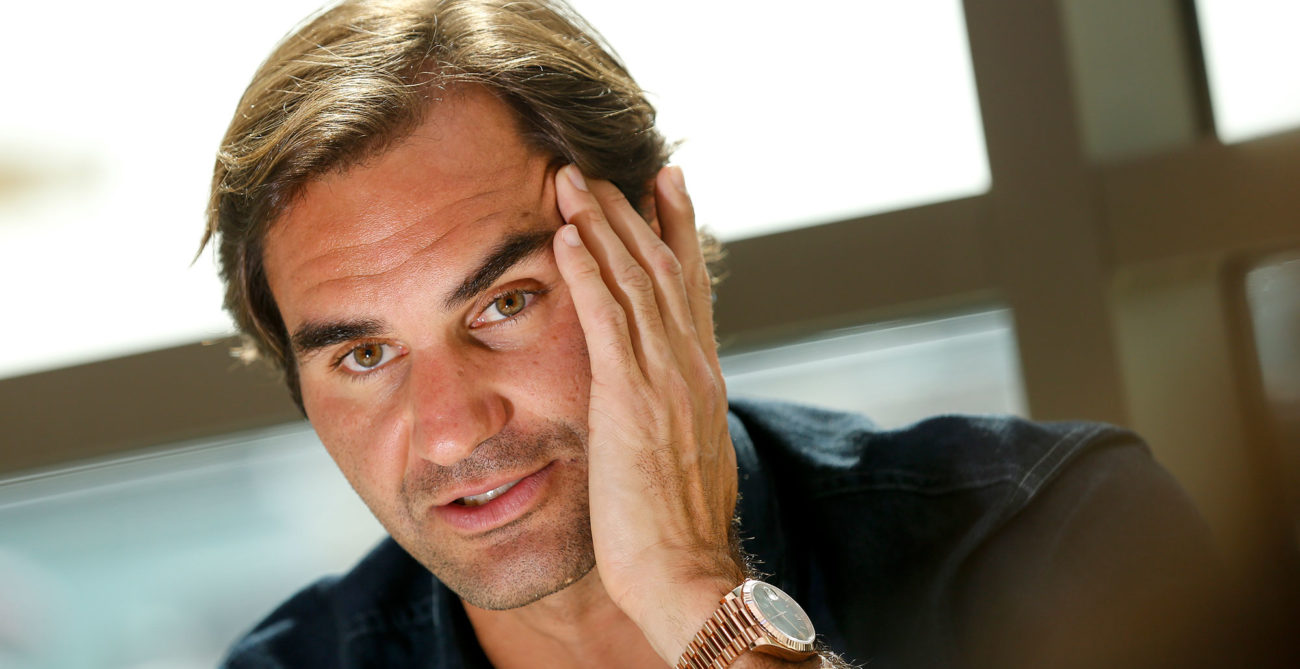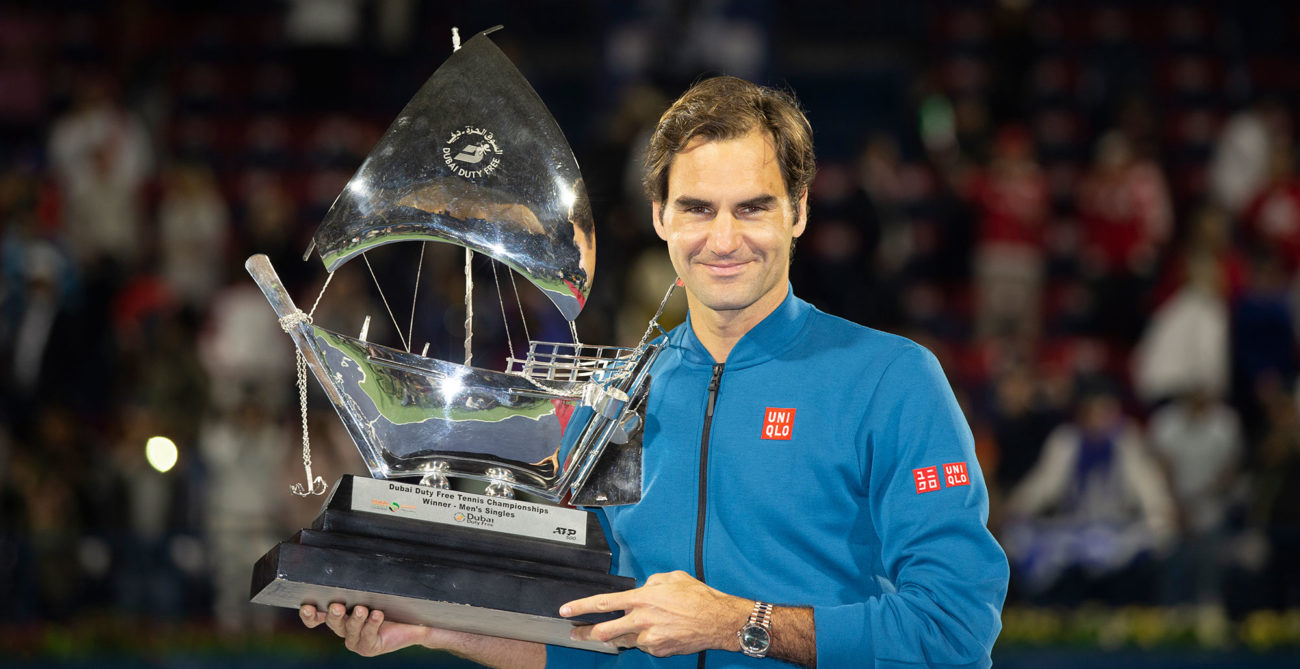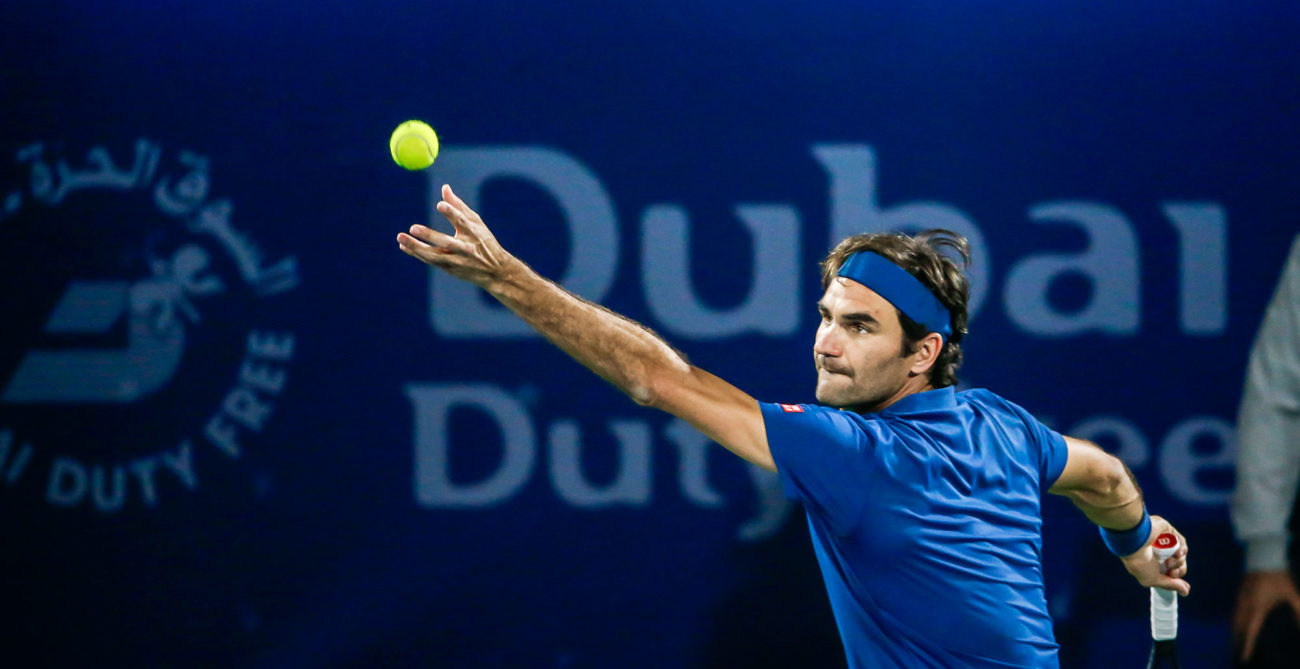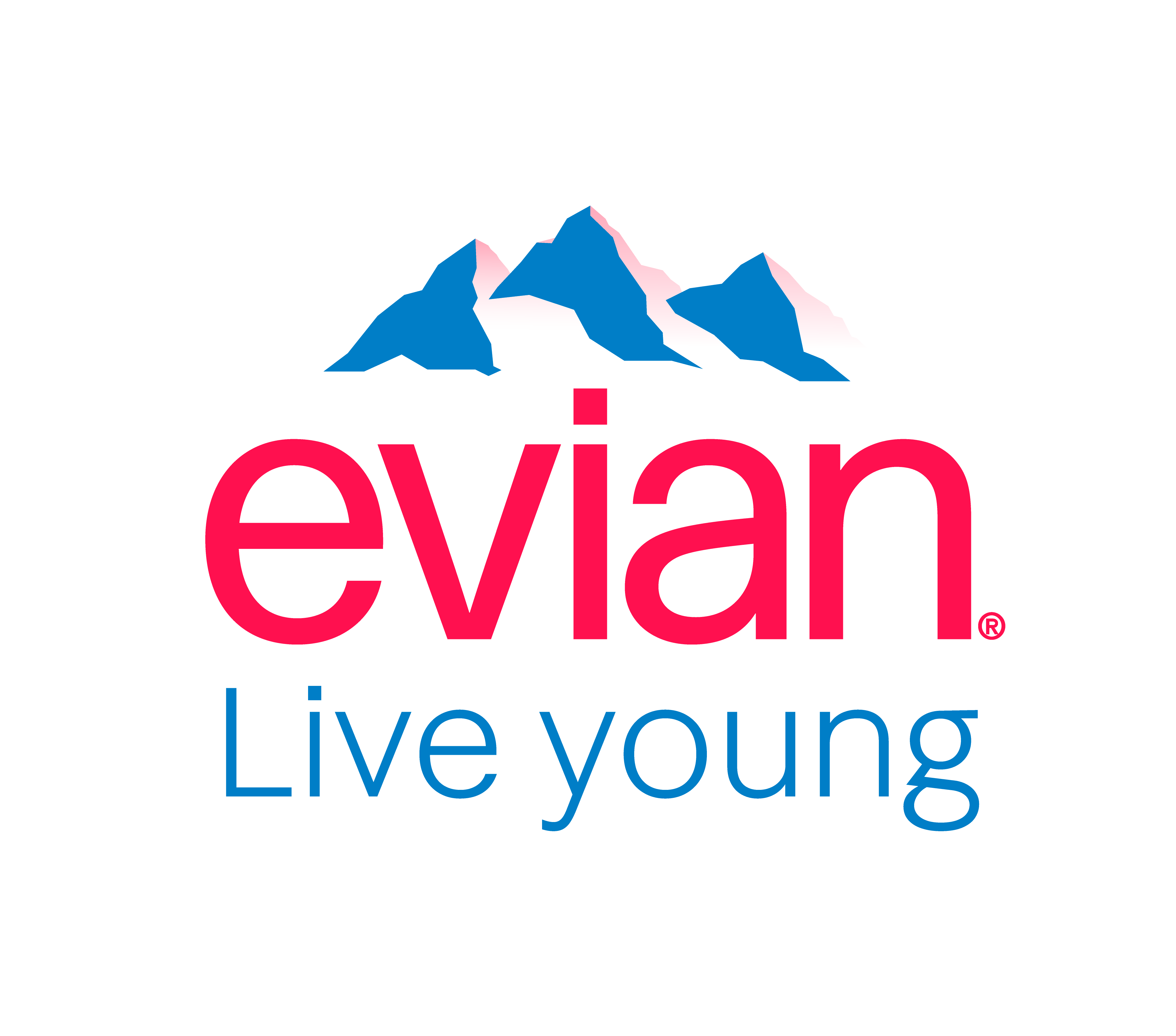Roger Federer – Press Conference
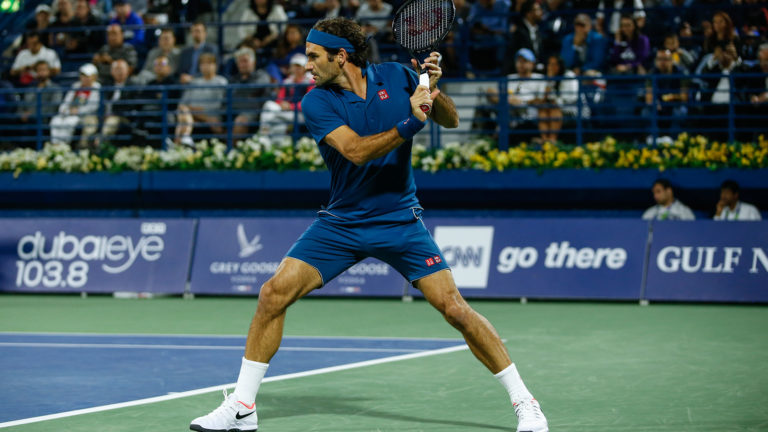
Men's QF Action: Roger Federer plays Marton Fucsovics in the quarter-finals of the 2019 Dubai Duty Free Tennis Championships.
THE MODERATOR: Questions, please.
Q. Tough to get on top, wasn’t it?
ROGER FEDERER: Yeah. I mean, look, you just go out there and try your best. Sometimes you get in the lead, sometimes you don’t. Important was not to get down in the score early on. Yeah, it was tricky. A couple of rain delays, especially one at 5-All, coming back with sort of no preparation, if you like, just have to serve can be tricky. Then the same thing in the second for him also. The energy of the body, the adrenaline, tactics, all that stuff kind of fades away just a little bit in those rain delays. It’s tricky to come back and just hit winners after that. Sometimes it’s a disadvantage. Sometimes it was an advantage. We made the most of it. The tiebreaker was tough. I’m happy I found a way to get out of that one. That was an exciting match, to say the least.
Q. How much does psychology play in these close matches, mental strength?
ROGER FEDERER: I mean, I think a lot. I think the game of tennis is very challenges on the mind. We tend to push it away sometimes with a high pulse, high intensity match. You think maybe less of what losing that point or winning that point could mean. You just focus on getting to the ball. I think it’s very demanding. Yeah, I mean, at the end of the day, I think it’s all about trying to put yourself in the best position time and time again, sort of push luck on your side. Some days you get it, some days you don’t. I do believe the better player wins, but not always. You have to battle hard because the margins are extremely slim in the game nowadays.
Q. Could we say the more you play, the better?
ROGER FEDERER: I think so (smiling).
Q. Staying at this level after three matches…
ROGER FEDERER: I believe I’ve gotten better as the tournament went on. But I think that’s always a logical thing to happen. It’s very rare that you come out and play a horrible match in the quarters or in the semis of a tournament because you’ve achieved a certain level and a sort of standard of play. I think as the tournament goes deeper, you get used to the ball conditions, the flight of the ball, your serve patterns, being able to hit the corners and the spots better, more frequently. It makes you play better. Sometimes it’s actually an advantage to play somebody in the early rounds rather than in the later rounds. There’s some guys that really struggle early, really pick it up later. I don’t know who those guys are, but there’s a lot of them on the tour. From that standpoint, it’s only but normal for me to feel better. Today conditions were more calm. It was a straightforward righty with a double-handed backhand, not too much topspin. He was making me work hard tonight. I think this match is going to hopefully lift my game a notch for tomorrow.
Q. Have you been able to watch any of the matches of Monfils and Tsitsipas?
ROGER FEDERER: I actually have not. It’s really just been a couple of points here and there. I cannot analyze. I would tell you what I thought. I think what Tsitsipas does just in general backing it up from Australia now, I mean, he’s played a lot, so he gives himself more chances. Winning Marseille last week, I believe, now backing it up coming here, it’s tough. I’ve done it in the past when Rotterdam and Dubai were back-to-back. I’m sure he’s also just a little bit tired, but he’s playing with confidence, so that’s great. In terms of Monfils, same thing, played great in Rotterdam. Took a week off in Marseille. I think he should have played. I am happy he is healthy. Had an injury scare with his wrist apparently in Marseille. So I am happy for him. He’s an exciting player. I know him really well. He’s a good guy.
Q. Talk about your possible next opponents. Talk about Borna and Basilashvili.
ROGER FEDERER: I mean, I think Basilashvili has done really well. Don’t know his game that well. I don’t know if I’ve practiced a lot with him, maybe never. I’ve only played him once in Australia I think in the first round, I believe it was, or second. Tough match, you know. Maybe he was not quite at the level he was at nowadays. I almost played him at the Australian Open. I think he lost in a really tight match against Tsitsipas two rounds before, one round before. I’m trying to think. No, I’m impressed by his power. I think he’s always had power. Important for him was to have some patience. I think he’s just more clear in his play. I remember him playing really well against Rafa at the US Open on center court. I think that was a match I really enjoyed. Borna, yeah, he’s really found his game. I remember when he came up, I played him here actually. Then also he beat Murray here, beat Rafa in Basel. That year he really made a steep ascent. Then he struggled for a while, then found his game again. We’ve had a couple tough matches as of late. He beat me on a few of those occasions. I think we’re 2-2 in the last four maybe. From that standpoint, I know I have my work cut out against either player. I’m happy for Borna to have really understood his game. That’s really important at the top level if you want to win the big tournaments, which he has now.
Q. Back to the conditions. When it’s blustery, do you think that’s tougher to manage with your style of play than with someone like Marton, who can hit through it more than you can?
ROGER FEDERER: Possibly. I’ve always felt like when I was younger wind was bad for me just because like maybe what you think as well, because I’m crafty around the court, I need good conditions to maybe go for the lines more, et cetera. I’ve learned how to toughen it out and also sometimes not play flashy tennis in these conditions, just stick with what you have, maybe be a bit more aggressive or more passive at times, just grind it out. I do believe that probably most of the time anyway it’s more easy to be a baseliner, I don’t want to say counter-puncher, but it’s a straightforward game plan: you put the ball in play, whenever you have a chance you play aggressive, otherwise you retrieve or just keep it in play, you try to hit it hard. When you’re an offensive player you’re constantly asking yourself the question, your opponent the question. You have to come up with something. It’s not always easy, especially in these conditions like you mentioned. That’s when I change my game just a little bit or I can actually also play through the wind sometimes and use it to the advantage. It depends if it’s swirly, side wind, back wind, back-and-front thing. Then also what kind of opponent you have. Is he a big server? Is he a runner? Kind of matters a little bit.
Q. Did you watch any of Rafa’s match with Kyrgios? What do you think of underarm serve as a tactic?
ROGER FEDERER: Yeah, underarm is definitely a tactic, I believe. Especially when guys are hugging the fence in the back. From that standpoint, shouldn’t be ashamed if you try it out. Just look silly if you miss it sometimes. Why not try it? The problem is like in practice, you never really try it. When you come out in the big stage in front of a full crowd, tricky to pull off. I saw some highlights. The end was epic. Had everything, dramatic. From that standpoint, it was I’m sure definitely a good match to be in the stadium to watch as a fan.
Q. With Nick, do you still find it surprising that enough years have passed and he’s still not able to bring it against lower-ranked players and he’s 70 in the world?
ROGER FEDERER: Yeah, I think the ranking is also sometimes a reflection of not having played enough tournaments. When he played, he maybe wasn’t 100% ready as well. It’s one of those mixes of so many things going on. The ranking obviously doesn’t show the truth right now, all that. I think with his game anyway, the ranking doesn’t really matter that much. I don’t think he emphasizes the ranking that much either. That’s when you start reading into the rankings, you get all analytic about it, if you don’t, you just see a player that can bring it against the best, and you know he can bring it any single day when he wants to. That basically sums it up.
